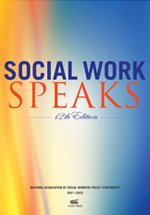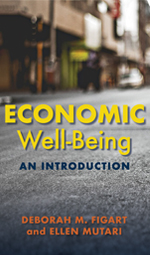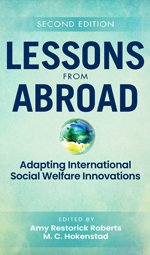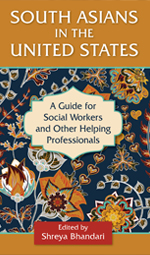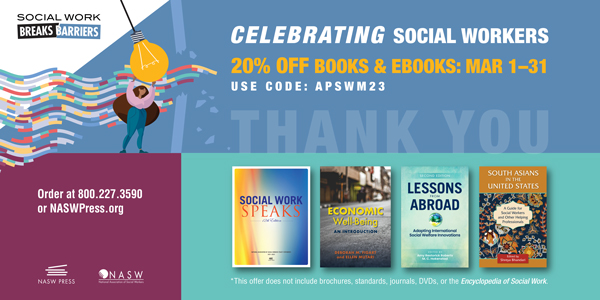
The 12th edition of Social Work Speaks is a comprehensive and unabridged collection of policies adopted and revised by the NASW Delegate Assembly in 2020. The Delegate Assembly, NASW’s key policymaking body, meets every three years. The policy statements set the parameters for NASW’s positions and actions on a broad range of public policy and professional issues.
This edition includes updated policy statements on a wide range of topics, including rural social work, voter rights and participation, mental health, hospice care, juvenile justice, foster care and adoption, and the rights of indigenous peoples. Social Work Speaks is a reference tool that represents the collective thinking of thousands of social workers across all fields of practice. This user-friendly resource can assist in developing organizational responses to policy issues, conducting policy analysis, and working in advocacy coalitions.
We are all part of the economy. We all have contributions to make to the economic well-being of our communities. We all make decisions about how we conduct our economic lives based on our values and preferences. Economic Well-Being: An Introduction provides us with tools to accomplish these goals.
As students of social work or other human services professions, it is essential that we understand how economic well-being—or the lack thereof—shapes people’s lives. To use a person-in-environment framework, we must appreciate the challenges faced by our clients, including their access to financial resources and their level of economic functioning. In this groundbreaking text, Figart and Mutari make the study of economic life accessible, applicable, and exciting. Earn 9.5 CEUs for reading this title!
There is much to learn through the international exchange of policy initiatives and program models. “Lessons from abroad”—the knowledge of problem-solving programs in other countries—can be an important component of understanding and addressing social problems in the 21st century United States, inspiring and informing policy action and program development.
Editors of Lessons from Abroad, Amy Restorick Roberts and M. C. “Terry” Hokenstad, bring together top scholars who share their expertise about approaches for understanding and addressing an array of global challenges through policy and practice examples from both developing and developed countries. Chapters examine distinct content areas, such as child welfare, aging, the climate crisis, and forced migration.
Currently, about 5.4 million South Asians live in the United States, with family origins in India, Pakistan, Bangladesh, Nepal, Sri Lanka, the Maldives, and Bhutan. When working with South Asian clients, it is crucial to understand their level of acculturation to the mainstream and the profound impact it has on their stress levels, coping mechanisms, and lived experiences. Hence, an intricate understanding of their immigration history, struggles with the immigration systems, and strong reliance on familial values is extremely important to serve them in a culturally responsive manner.
This unique book debunks the myth of the “model minority,” a term often used to describe South Asians in the United States due to the rapid financial and cultural success of some of the subgroups among South Asians. Instead, the authors have compiled comprehensive evidence-based literature on the prevalence, nature, and types of social issues that South Asians in the United States face, as well as how best to intervene.
______________________________________________________
For more information about all NASW Press titles, including books, eBooks, reference works, journals, brochures, and standards, visit the NASW Press website. If you have questions, please send an email to NASWPress@BrightKey.net or call 1-800-227-3590.

